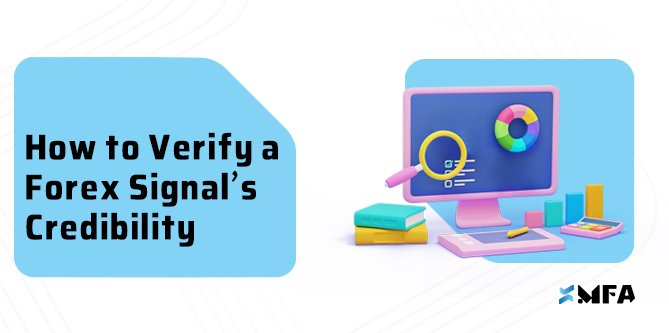Introduction | Not Every Signal Is Worth Your Trust
In the fast-paced Forex market, many traders rely on trading signals to make quick decisions. But using the wrong signal can be more damaging than not using one at all.
Today, hundreds of Telegram channels, Instagram pages, and websites claim to offer “high-accuracy” signals. So how can you tell which signal is truly reliable and trustworthy?
In this detailed guide from MFA Signals, we break down the essential factors that help you verify the credibility of a Forex signal—before you place a trade.
Why Verifying a Signal Matters
The main reason beginner traders lose money isn’t always the market—it’s blind trust in low-quality signals.
A credible signal isn’t just a price. It’s backed by strategy, timing, and transparent reasoning. Before acting on any trade suggestion, ask:
• Where is this signal coming from?
• Is there analysis or just numbers?
• Who’s the analyst or team behind it?
• Are past results transparent and trackable?
1. Real Analytical Foundation
A professional signal always includes some form of analysis. Whether it’s:
• Technical (e.g. price action, indicators, structure),
• Fundamental (e.g. news, interest rates, NFP),
• Or even behavioral (market sentiment)
Signals without explanations or strategy should be approached with caution.
Tip: A chart screenshot isn’t enough. Look for written analysis and trade logic.
2. Detailed Trade Structure
A credible signal should provide:
• Exact Entry Point
• Clearly defined Stop Loss
• Multiple Take Profit levels
• Clear Risk-to-Reward explanation
• (Optional) Suggested lot size based on account size
This ensures proper risk management and sets expectations before entering a trade.
3. Performance Transparency
If a provider claims “90% win rate”, ask for proof:
• Archive of past trades
• Screenshots or video records
• Monthly pip summaries
• Distinction between gross and net profits
A professional signal provider won’t hide results—they’ll showcase them.
4. Analyst Support and Signal Updates
Markets change. So should signals.
A credible provider should offer:
• Updates if market conditions shift
• Live communication (via Telegram or platform)
• Explanation of exits or SL adjustments
• Emotional support during high volatility
If you receive a signal and never hear back, that’s a red flag.
5. Consistent Style and Strategy
A serious analyst has a clear approach. For example:
• Only uses price action
• Trades based on economic news
• Focuses on specific timeframes (e.g. M15, H1)
If the signal style is random and changes often, learning and consistency suffer.
Comparison: Trusted vs Unreliable Forex Signals
| Criteria | Trusted Signal | Unreliable Signal |
| Technical/Fundamental Basis | Yes, clearly explained | No or weak logic |
| Entry / TP / SL | Precise, step-by-step | Vague or missing |
| Performance Archive | Available with examples | Not shared or fake |
| Analyst Responsiveness | Active and helpful | Absent or purely promotional |
| Market Updates | Sent if conditions change | No follow-up |
| Strategy Clarity | Clear and repeatable | Mixed, inconsistent |
Real Example from MFA Signals
Every VIP signal from MFA includes:
• A fully annotated chart with written reasoning
• Three Take Profit levels for stepwise exits
• Position sizing suggestion based on capital
• Analyst support before, during, and after the trade
• Monthly report archive available for review
Our verified VIP success rate ranges from 75% to 82% over the past 6 months.
How to Do Basic Signal Validation Yourself
You don’t need to be an expert. Just check:
1. Is there any analysis included?
2. Does the signal have SL and TP levels?
3. Is the analyst or brand clearly named?
4. Are there past results or archives available?
5.If you’re testing a new provider, use a small lot size first
FAQs | Signal Reliability
Are all VIP signals reliable?
No. Just because it’s VIP doesn’t mean it’s quality. Use the checklist above.
How can I tell if a signal is copied?
If it lacks original analysis, or seems generic, it may be reposted. Look for voice notes, videos, or unique commentary.
How long does it take to evaluate a provider?
Usually 7–10 signals are enough to assess support, performance, and honesty.
⸻
Conclusion | Real Signals Build Real Confidence
A trustworthy signal means:
• Strong analysis
• Transparency in results
• Ongoing support
• Clear structure
At MFA Signals, we don’t just send numbers. We provide you with live trade logic, mentorship, and structure to grow as a trader.
Each signal is a live learning experience.

